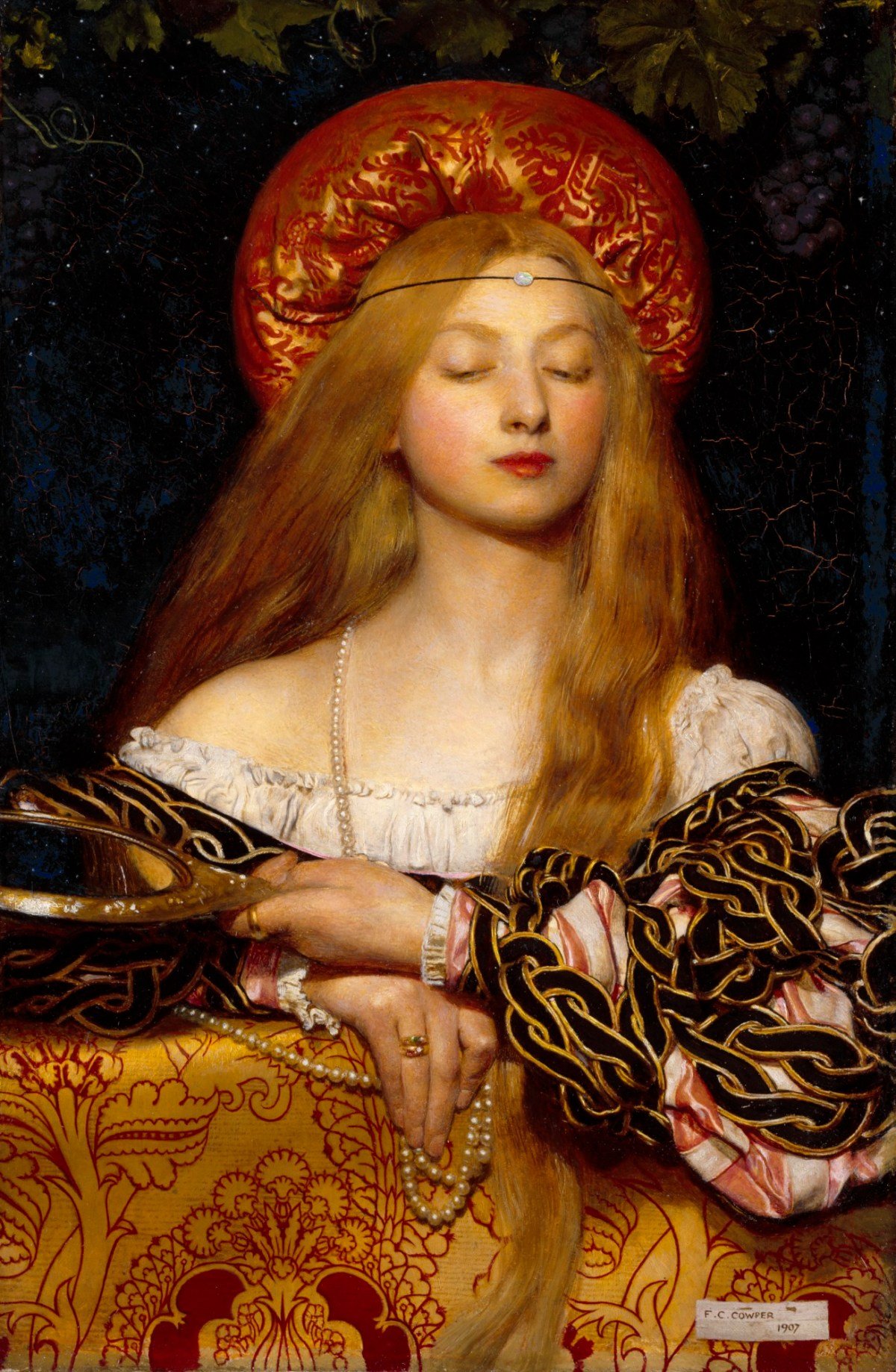The Illusion of Artistic Success (or Why Not To Buy Fake Followers)
February 16 2019
Frank Cadogan Cowper, Vanity, 1907. © RA Collection/The Artist’s Estate - CC BY-NC-ND 3.0
Meet Vanity. She was painted in 1907 by Frank Cadogan Cowper. She's beautiful and seductive. But she's also completely fucking fake. Everything she embodies - her beauty, artifice, luxury - is, despite its apparent substantiality, completely transient. There's a reason why I've featured her. Since Kim and I have been pushing out a bit more, applying for more shows, putting together more grant proposals and finally re-diving headfirst into the sludgy, often unethical quagmire that is the art world, we've become acquainted with some really shitty practices perpetrated by fellow artists. Artists are now routinely buying likes and followers on social media to make themselves look more credible, more in demand, more famous, more attractive to buyers, dealers, collectors and galleries. Invariably, the quality of the work created by these 'artists' is technically poor. Sure, it has the seed of something good and the artists were not originally without talent, but what they produce and promote is stale, repetitive, unoriginal and lazy. With a little digging, their portfolio, exhibiting record and press proves to be limited and does not justify the thousands of fans and followers they have. To fill this void, they employ three tactics: 1) Apply filters and manipulate their work to look as good as possible, 2) Populate their feeds with glossy selfies, and 3) Buy more followers to give the illusion of success. Sure, brand is important in art. Having a strong voice is important. But these - and success - rely on authenticity. Don't be fooled. Big galleries, big dealers, big collectors - the ones that these 'artists' are trying to snare - are wise to this. There are easy ways to tell if Mr HotShot Sculptor and Little Miss Wonderful Painter is buying followers. Unfeasibly large jumps in follower numbers over short periods of time and low engagement rates on posts in comparison to follower numbers are a dead giveaway. Someone suddenly going from 1500 to 13K followers overnight? Someone only getting 200 likes when they have 15K followers? There even is free account auditing software which can identify the % of fake followers on an account. So, the moral of the story is…? Anyone doing this should, ironically (!) take a long hard look in that mirror. These shady practices might make you feel better. They might make your ego sing. They might make you believe that you are a fabled 'influencer', are obliterating the competition and that by creating the illusion of success, you will become successful. But it is a dirty downward spiral of vanity, delusion and fakery. Of wasted time and of missed opportunities. If you are really an artist, turn off instagram and spend that time you would have wasted constructing a transient, virtual world of fake admiration and instead fucking create better art. The success you are so desperate crave will come on the back of hard work, integrity and skill, not vainglorious bullshit.
